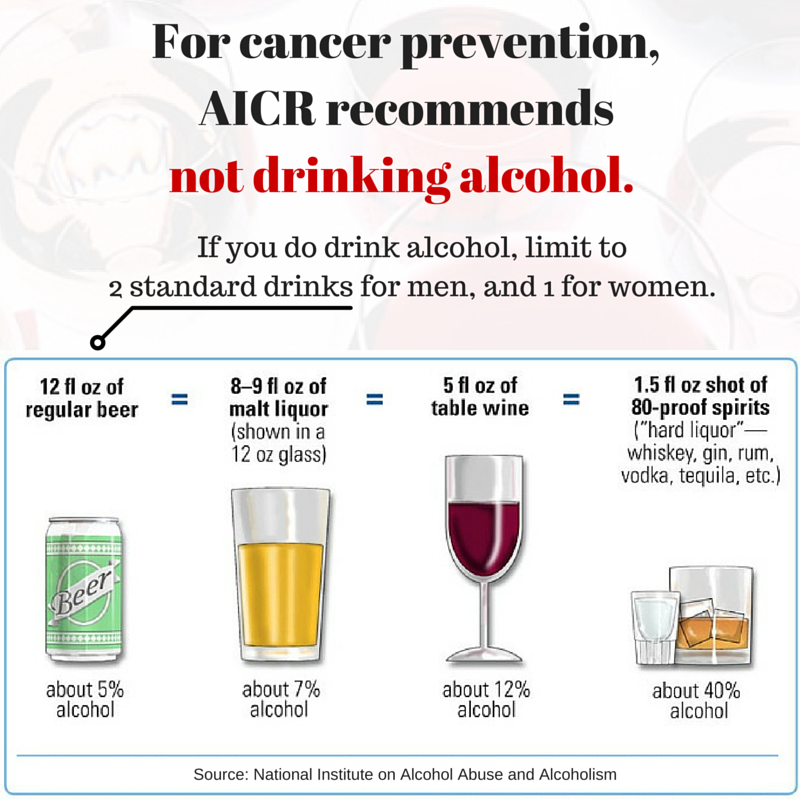For lower cancer risk, AICR recommends not to drink alcohol. Ethanol is a recognized carcinogen and our latest report found that even moderate amounts increase the risk of breast cancer. Yet whether drinking moderate amounts of alcohol has some health benefits is an ongoing area of research.
Now a study suggests that light to moderate drinking can lower the risk of diabetes. The study was published in Diabetologia.
Preventing diabetes is clearly important by itself, but that also reduces cancer risk. We wrote about that earlier this week.
On first glance, it seems confusing. But one thing is important to remember: AICR, along with other major health organizations say that if you don’t drink, don’t start. The evidence isn’t there yet for health benefits.
If you do drink, then do it moderately. That means two drinks a day at most for men and one for women.
 “This is one study showing an association, and it adds to the evidence,” said Alice Bender, MS, RDN, AICR Head of Nutrition Programs, “The analysis of global research shows that small amounts of alcohol increase the risk of certain cancers, such as breast, but for those who drink, limiting it to a few drinks a week is reasonable for keeping cancer risk lower.”
“This is one study showing an association, and it adds to the evidence,” said Alice Bender, MS, RDN, AICR Head of Nutrition Programs, “The analysis of global research shows that small amounts of alcohol increase the risk of certain cancers, such as breast, but for those who drink, limiting it to a few drinks a week is reasonable for keeping cancer risk lower.”

The new study looked at about 76,000 Danish adults. When they entered the study participants answered questions about their drinking and other lifestyle habits.
After an average of 5 years, men who drank alcohol 3-4 days per week had 27 percent lower risk of developing diabetes compared to those who drank less than one drink per week. Women had a 32 percent lower risk. Compared to non-drinkers, the lowest risk was seen among those consuming 14 drinks a week among men and 9 for women.
“Alcohol is a small piece of your overall diet but we know that obesity is by far the biggest risk factor for diabetes and many cancers.”
As this area of research continues, AICR experts point out there are many lifestyle factors for lowering risk for both cancer and diabetes.
“Alcohol is a small piece of your overall diet but we know that obesity is by far the biggest risk factor for diabetes and many cancers – there are other important ways to reduce your risk. One is through keeping your weight healthy, as well as eating a plant-based diet and being physically active,” said Bender. “It’s about what you do most of the time, day in and day out.”
The study received no specific grant from any funding agency. The collection of data to DANHES was funded by the Ministry of the Interior and Health and the Tryg Foundation.





